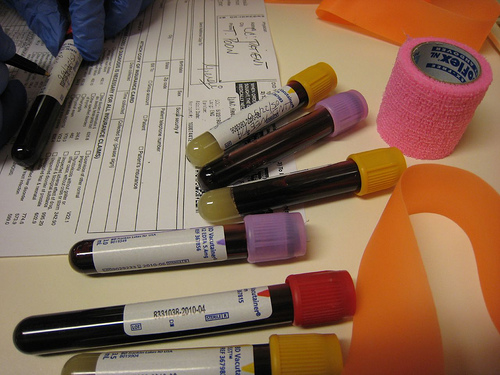A Blood Test for Cancer: Study

A research team has devised a way to diagnose cancer with a high level of certainly with nothing more than a simple blood test, according to a recent study detailing a method which could save medical and patients alike a significant amount of time and money.
Currently, the best way for doctors to diagnose cancer with some certainty is through x-ray computed tomography (CT) and positron emission tomography (PET) scans. Both these scans are used to create detailed images that highlight abnormalities in a patient's body most likely to be cancerous tumor growths. While these scans are relatively effective at diagnosing the presence and even type of cancer a person may have, they cost medical providers and patients alike a significant amount of time and money.
Now, according to a new study, researchers are looking into new ways to determine the presence of cancer through quick and inexpensive blood testing alone.
The study, published in Nature Medicine, details just how this test works and some of the challenges researchers behind the project still face.
According to the authors of the study, past research has presented strong evidence to the scientific community that tumor DNA circulating in the bloodstream of a patient could be a promising biomarker for identifying and diagnosing cancer. However, previous blood test methods were not sensitive enough to accurately differentiate cancers.
Now, according to the study, researchers from Stanford University School of Medicine have designed a new and appropriately sensitive blood testing method. In initial experiments, the test correctly identified cancer in previously diagnosed stage one lung cancer patients with a 50 percent success rate. Encouragingly, the same testing method identified stage two lung cancer in patients with a 100 percent success rate.
Right now, these results show that the method, which focuses on identifying a wide variety of cancer DNA biomarkers, is best applied as a "second opinion option" where it is used to help confirm a previously made diagnoses with more certainty. As the testing method gets refined by research teams, however, it is their hope that it one day can be used as a primary mode of cancer diagnoses in even the earliest stages of cancer, when even CT and PET scans can be unreliable.
The study was published in Nature Medicine on April 6.
© MD News Daily.
